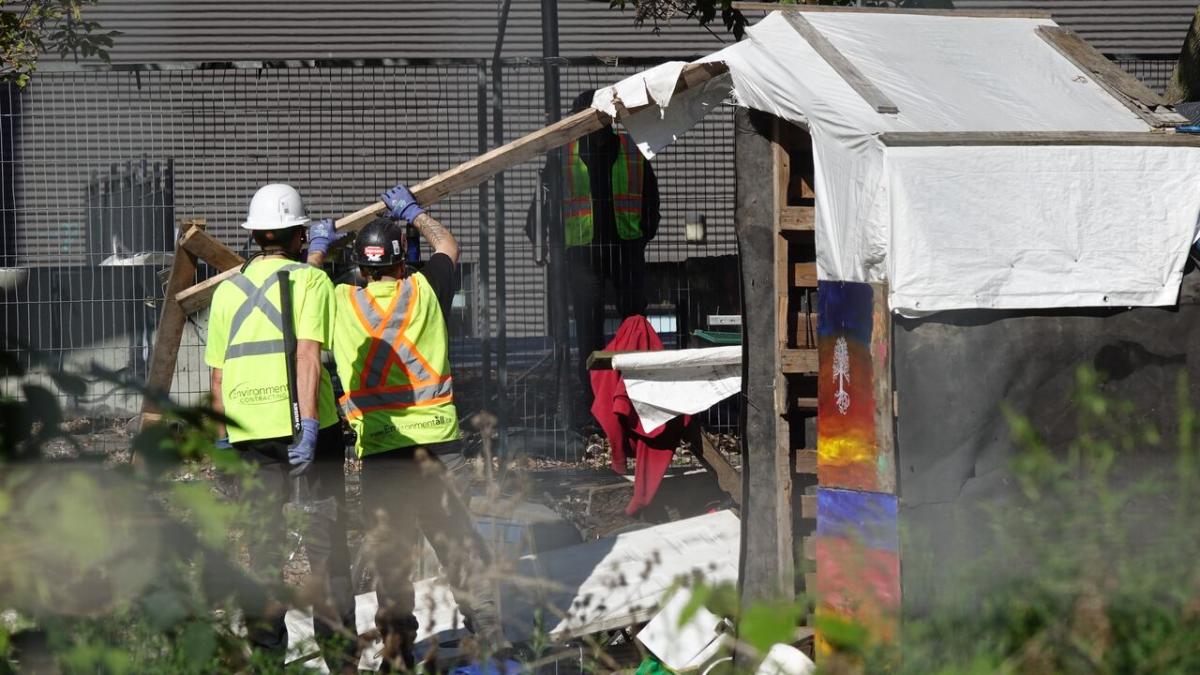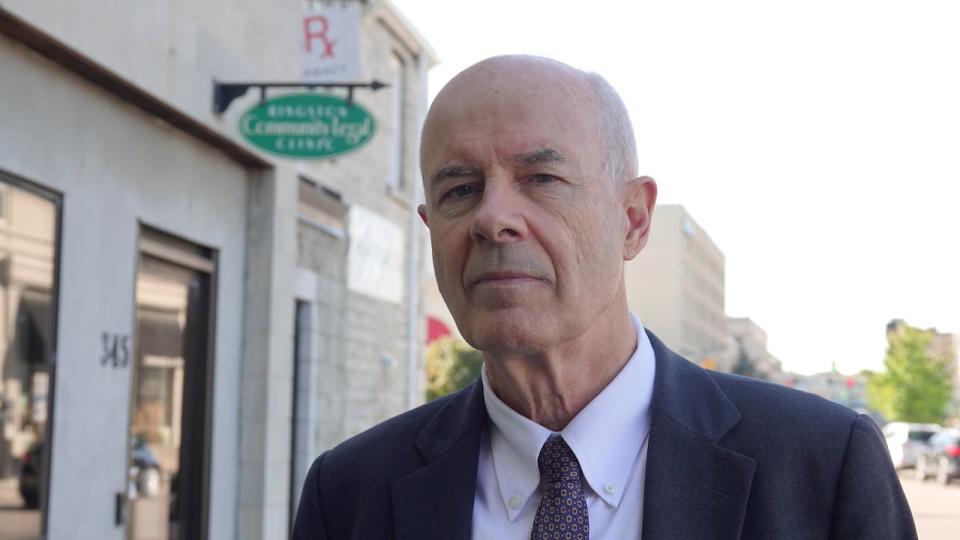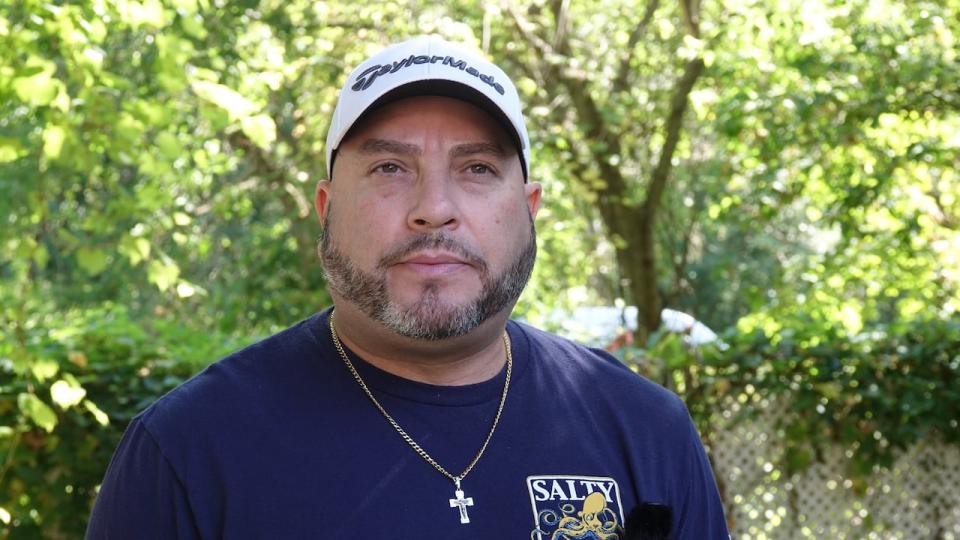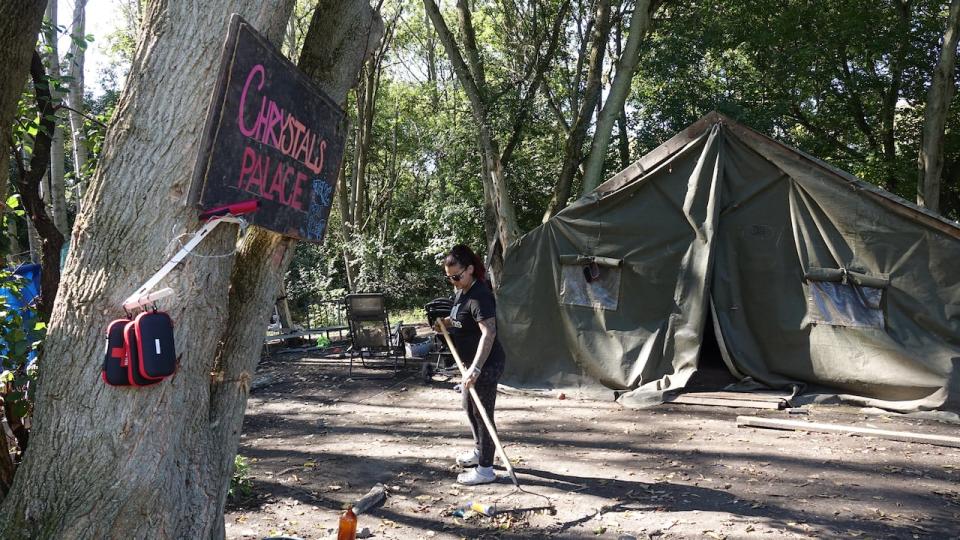


With the rev of a truck’s engine, a makeshift shelter in a Kingston, Ont., park came crashing to the ground Friday morning as workers used heavy machinery, sledgehammers and shovels to clear away an encampment near the city’s Integrated Care Hub (ICH).
Chrystal Garrity, who lives in a different section of the Belle Park encampment, said she knows the people who occupied the structure being demolished, and said they thought they had more time to collect their belongings.
“It’s heart-wrenching,” Garrity said. “It’s even more heart-wrenching to think of how they’re going to feel when they come up here and notice that their home’s gone.”
The ICH and the area around it have remained fenced off more than two weeks following a series of violent attacks that left two men dead and a woman in hospital with life-threatening injuries.
Earlier in the week, city officials announced part of the park that surrounds the hub would be closed to all users for an “undetermined period.” During the closure, the city said it would carry out a cleanup to address a rodent infestation and soil contamination.
John Done, a lawyer with the Kingston Community Legal Clinic, said rodents and dirty soil are nothing new for Belle Park, but two things have changed — the number of homeless people in Kingston, and the number of shelter beds available to them.
“The need hasn’t decreased, the need has increased,” Done said.
Lawyer says city is doing what judge denied
Done defended encampment residents in a court challenge last November when the city sought an order to clear the area.
Justice Ian Carter ruled the city’s ban on overnight sheltering was unconstitutional. In his decisions, the judge included an exception to Kingston’s parks bylaw allowing people who are homeless to erect shelters in parks from one hour before sunset until one hour after sunrise.

John Done is a lawyer with the Kingston Community Legal Clinic and defended encampment residents when the city sought a court order to clear the site. (Dan Taekema/CBC)
However, in closing the encampment this week, the city cited the same bylaw that was at the centre of the court case, insisting it grants officials the authority to prohibit “all access to and use of the park, including recreational activities and sheltering overnight.”
“The city has just gone ahead and proceeded to do what Justice Carter denied,” Done said.
Living nearby an ‘ongoing battle,’ says neighbour
For Rob Grillet, the site of work crews in Belle Park is just the latest in a series of attempts to address the encampment, none of which have had lasting impact.
Grillet’s house on Montreal Street backs onto the park, where two tents sit just beyond his fence.
Grillet compared life near the encampment to an “ongoing battle” that has included physical confrontations, needles in his yard and personal property disappearing “almost on a daily basis.”


Rob Grillet’s home backs on to Belle Park and the encampment. (Dan Taekema/CBC)
While he sees the need for addictions and mental health support, he explained that the abandoned driving range and large wooded area that surround the ICH all but guarantee a new encampment will form.
Grillet said he hopes the ICH stays closed, but if it does reopen it needs better security and more funding for staff to address the needs of those who rely on its services.
As for Friday’s cleanup, he expects it won’t change much.
“I’ve seen trucks back there before,” Grillet said. “It still looks like a landfill.”
Residents moving deeper into park
In its media release announcing the cleanup, the city said the organizations that run the ICH are working to “finalize plans to provide safety for all” when they reopen.
In the meantime, the city said it will continue to help encampment residents store their belongings and connect with services including emergency shelters, though officials recognized some people may prefer to stay in parks.
Garrity said she believes about half the people whose tents and shelters have been fenced off have simply moved deeper into the woods of Belle Park.


Chrystal Garrity cleans up outside her tent in Belle Park on Friday. Her shelter is outside the area being dismantled. (Dan Taekema/CBC)
The ICH houses Kingston’s only supervised consumption site, meaning drug users have been without that service for the past 15 days.
“I’ve had people come down here to make sure they’re safe while using and stuff like that, but it’s nothing compared to what the [ICH] was able to do,” said Garrity, whose own tent sits outside the fenced area.
Regardless of what happens next, Garrity said she has no plans to leave the encampment.
“If they’re going to bulldoze my tent, they’re going to bulldoze it with me in it,” she said.